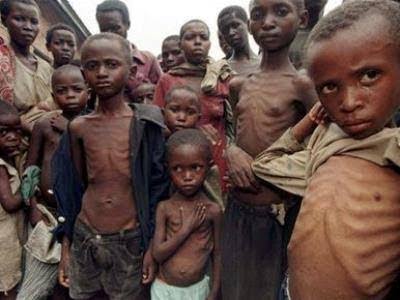Millions of people in Africa’s most populous country, Nigeria, are struggling with economic problems analysts say were caused in part by government reform policies introduced earlier this year.
Nigeria scrapped fuel subsidies in May leading to price hikes in food, transportation and energy costs. Data released last week by the National Bureau of Statistics showed Nigeria’s inflation hit an 18-year high of 27.3 percent.
Analysts say the trend could exacerbate suffering in a country with an estimated 25 million food-insecure people.
Nigerian roadside food vendor Vivian Nwankwo started her business four years ago to support her family after her husband died.
But as the cost of food items continues to rise, she said her profit margin has dropped by more than half and forced her to withdraw two of her children from school to free up cash for food.
“Before we were managing, but now things are too expensive,” Nwankwo said. “It’s difficult to cope or make profits. People are complaining and sometimes at the end of the day, I’m at a loss. Even my two children who are in school do not go every day because I cannot provide for them always.”
There are millions of people like Nwankwo in Nigeria struggling to meet basic needs.
The United Nations estimates 25 million people in Nigeria — or about 15 percent of the total population — are food insecure.
Analysts say regional instability, climate change and inflation are the major triggers of food insecurity in Nigeria. The situation worsened after the government stopped paying subsidies on fuel in May, sharply increasing costs for food, transportation and energy.
Nigeria’s currency devaluation is also impacting commodity prices and contributing to overall inflation.
Nigerian Humanitarian Affairs Minister Betta Edu said authorities are responding to the challenges, in part by declaring a state of emergency on food security.
“We have lots of interventions that we’re putting on the table and the payments of this conditional cash transfer is ongoing,” Edu said. “The conditions attached to it is that they invest in their businesses, ensure that their children go to school. These are all targeted at improving the lives of people and alleviating poverty. The third part is providing fertilizers for poor local farmers to be able to produce food that we’ll buy off from them and sell as food rations.”
According to the World in Data analysis, Nigeria is among countries with the highest food expenditure with an estimated 60% of total personal income spent on food.
Experts say the situation will worsen if food inflation continues to rise, and that vulnerable people will be most adversely affected.
The Nigerian Central Bank on Monday indefinitely postponed a crucial meeting on interest rates even as inflation worsens.
Analysts say unless something changes, many Nigerians like Nwankwo will struggle to get by from day to day.


